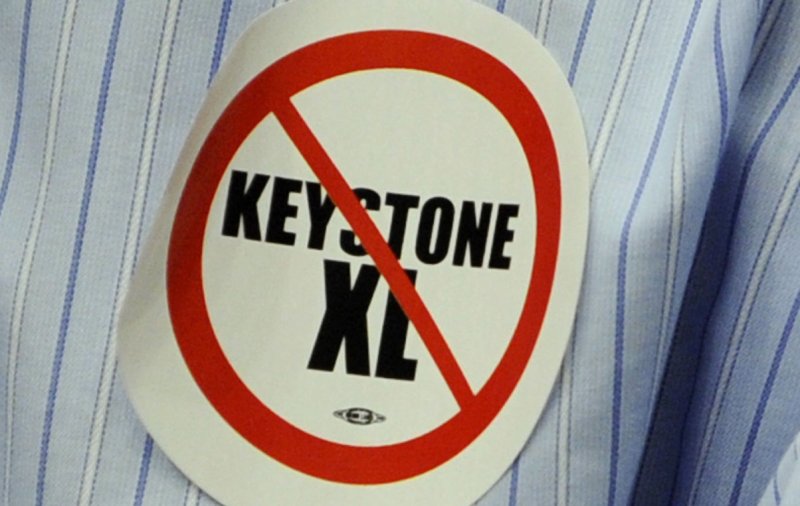A man wears a sticker against the Keystone XL pipeline project at a State Department hearing to consider if it is in the U.S. national interest in Washington, DC, on October 7, 2011. UPI/Roger L. Wollenberg |
License Photo
WASHINGTON, Feb. 28 (UPI) -- There hasn't been a study on the effects that part of the Keystone XL oil pipeline would have on southern wetland ecosystems, an advocacy group said.
Canadian pipeline company TransCanada has announced an intention to build a section of its Keystone XL from Cushing, Okla., to the southern Texas coast.
Noah Greenwald, a program director at the Center for Biological Diversity, said there's been no analysis on how that section would affect wetland ecosystems.
"The Obama administration should be willing to take a hard look at this project and make sure it follows laws that protect clean water, wetlands and endangered species," he said in a statement.
U.S. President Barack Obama in January rejected TransCanada's initial proposal, saying an "arbitrary" deadline imposed by Republican leaders didn't give his administration enough time to study the project. The U.S. State Department, however, had issued a report in August 2011 that the project created "no significant impacts provided environmental protections measures were implemented.
TransCanada said it would reapply for a permit for the entire project and supplement its request with an alternative route in Nebraska as soon as that route is selected.
Nebraskans said initial plans would run through a key aquifer.
U.S. Rep. Fred Upton, R-Mich., chairman of the House Energy and Commerce Committee, expressed frustration that only a portion of the project was planned.
"I am pleased to see TransCanada is moving forward but remain deeply disappointed that construction of the full pipeline has not been approved after more than three years of stringent environmental review," he said in a statement.
TransCanada needs U.S. federal approval because the pipeline could cross the U.S.-Canadian border.















